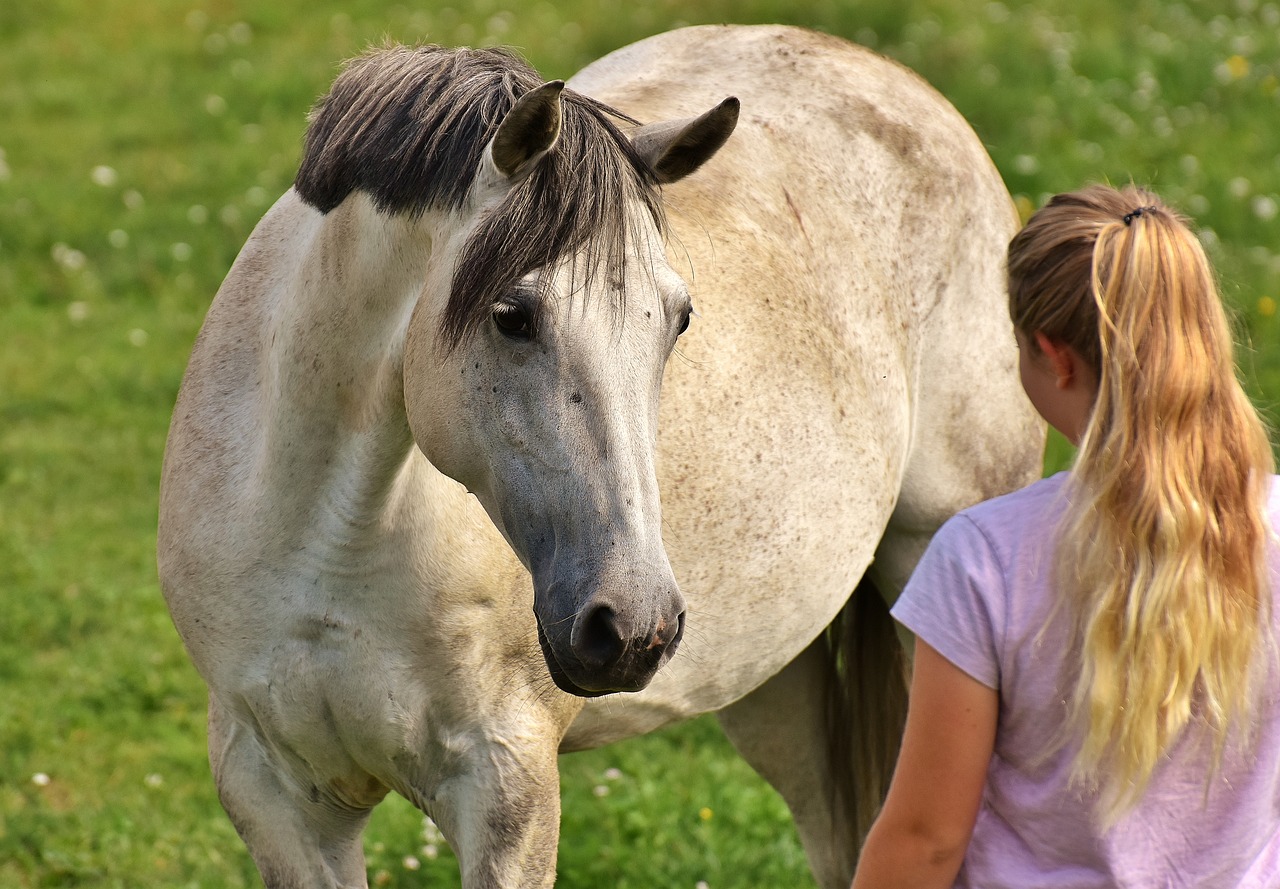Horses are complex social animals that rely on body language and facial expressions in order to communicate.
As any horse person can attest, this communication is not limited to their species. Horses can communicate with other animals, as well as with humans. For example, horses will pin their ears at us to tell us they are angry.
Horses also know how to interpret our body language and tone of voice, a skill that allows us to interact with them on the ground or in the saddle. However, given that they know how to read other horses’ facial expressions, can they also interpret our facial expressions? In 2016, a group of researchers from the University of Sussex sought the answer to this question.
The study, titled “Functionally Relevant Responses to Human Facial Expressions of Emotion in the Domestic Horse (Equus caballus)” and published in Biology Letters of The Royal Society Publishing, used a test group of 28 horses—21 geldings and five mares, aged four to 23 years. Each horse was shown two photos across two trials. One photo was of a happy, smiling man unfamiliar to the horses. The second photo was of the same individual with an angry facial expression.
For each photo, the researchers measured:
- How much time the horses spent looking at the photo
- The horses’ heart rate while looking at the photo
- Which eye the horses used to look at the photo
The findings in this experiment suggest that horses can, in fact, discriminate between positive and negative human facial expressions.
First, the amount of time the horses spent looking at the angry photo was significantly longer than for the happy photo. This suggests that the horses thought the angry face required more of their attention than the happy face.
Secondly, when looking at the angry photo, the horses’ heart rate rose significantly compared to their heart rate while looking at the happy photo, indicating that the angry expression stressed the horses, as they correctly perceived it as negative. Heart rate in horses is known to fluctuate according to handler stress, reported researchers, “demonstrating a potential physiological sensitivity to human affect,”
Finally, most of the test horses used only their left eye in order to look at the angry photo, but had no preference in terms of which eye to they used to view the happy photo. This tendency has also been observed in other animals, such as dogs and correlates right brain analysis. Horses’ brains are divided into two distinct sides, called hemispheres. The right hemisphere controls the horse’s left eye, while their left hemisphere controls their right eye. Therefore, when a horse sees something with their left eye, they’re using the right side of their brain in order to analyze what they’re seeing—in this case, the angry expression.
All of these finding support the idea that horses can recognize negative expressions, at least to some degree.
When it comes to a happy expression, the horses didn’t focus on it, and it wasn’t clear if they even perceived it as a positive expression, or a neutral one. On contrary, when it comes to an angry expression, we now know that horses can recognize it, and that they know that this expression is negative in some way and may require action on their part.
What does this all have to do with our everyday routine with our horses?
There are a lot of things you can take away from this study, but one simple thing we can decide to do is ask ourselves whether we feel angry right before we are about to enter the stable. If we discover that we are, for whatever reason, then we can try and put on our happy face before saying hello to our horse. This can help ensure that they won’t get stressed by our facial expression, and can even help us make our own trouble fade away.
About the Author
Shir Agami is an experienced horse rider and horse-riding instructor, with years of added experience in training horses. She holds a B.Sc in biology and is currently a graduate student in Neurobiology, while working as a freelance content writer, game developer, and translator for various venues, including the horse-themed game ‘Horse Isle’.




 June 29, 2018
June 29, 2018 
























